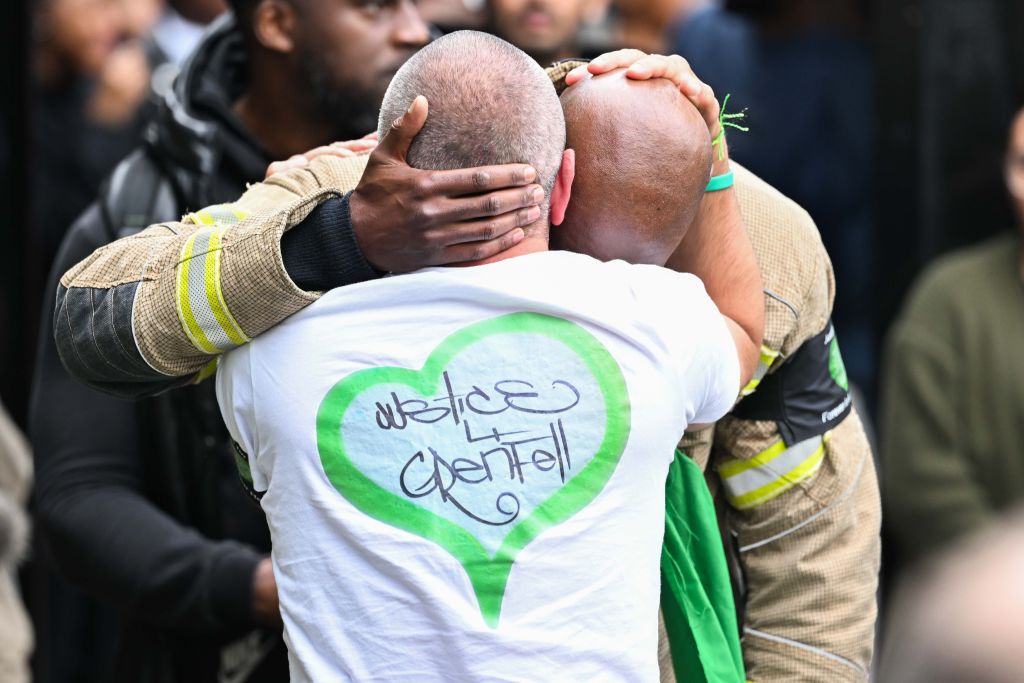Published this week, the Grenfell Tower Inquiry report cites a number of targets for condemnation following the 2017 fire which killed 72 residents. One of the most crucial is the state’s willingness to conceal information and protect its own reputation in the immediate aftermath of a major incident.
The report traces a long and unpleasant history of this with regard to cladding fires, and it is clear reading it that the lack of honesty came at a fatal cost to those who lived in Grenfell Tower. What is worse is that it continued even after the fire destroyed much of the building.
It is worth looking back to 1991, when a tower block in Knowsley, Merseyside went up in flames, but the official investigation said nothing about the fact that its cladding was made of highly combustible plastic. The building was clad as part of a Government pilot scheme, and a handwritten note from the time — which I first unearthed back in 2021 — reveals that the relevant department’s press office had made “a request […] to play down the issue of the fire” so that the briefing was “purely factual”.
The Inquiry report found it “difficult to understand” why this fire was played down, but it does not take much imagination to offer a suggestion: the authorities were aware it would be extremely embarrassing. This response set the tone for what would follow with every major cladding fire to come — including Grenfell.
Eight years before Grenfell, a fire at Lakanal House in South London killed six people, including three children. But Government officials shut down the official investigation in less than a month — before key questions had been answered. Lawyers for the bereaved and survivors were scathing about this in their submissions, calling it a “grotesque abdication of responsibility” which “raises the spectre of a deliberate cover-up”.
When it became clear thanks to the police that the panels on the wall of the building were violently combustible, this information was not made public, despite the fire brigade recommending a warning be given to other housing providers. Officials wrote internally that they needed to be “very careful” to avoid “setting the hares running”.
Wednesday’s report was scathing of these failures, saying they showed “a complacent and short-sighted attitude towards learning wider lessons from the fire”, but once more said the failure to investigate further was “difficult to understand”. These fires — as well as one in Irvine, Scotland in 1999 — before Grenfell all spread over combustible plastic and were to some extent “played down” by Government officials.
And then there is the aftermath of the Grenfell fire itself, when the Government insisted that its official guidance effectively banned the use of combustible cladding systems unless there had been a large-scale test. The implication of this was that the material used on Grenfell and elsewhere was only there because of incompetence and non-compliance.
This declaration had a profound impact. It directly resulted in the advice note which told building owners they had to remove anything combustible from the walls of the buildings they owned. This in turn crashed the market for high-rise flat sales as mortgage providers insisted on compliance, the ripple effects of which are still playing out today. The trouble was — as we now know — this letter wasn’t right. The words the Government claimed banned these materials had been, to quote Wednesday’s report, “rushed through by the back door without proper consideration”. Their meaning was never made clear.
The official responsible for making this declaration was asked during oral evidence whether it amounted to a “planned, deliberate and underhanded attempt by you and those around you to rewrite history” in light of the Grenfell fire. Though he denied this, he did accept that it was a “false representation” of the true position, making the excuse that he was “probably really tired at that point”.
These cases produce something for which the story desperately calls: candour, especially from those in public roles, in the immediate aftermath of a major event with public safety consequences. We deserve to be told the truth by those who represent us, even if it will embarrass them and give them bigger problems to clean up.
As the new Labour government wrestles with the changes it needs to make to prevent a repeat of this disaster, this is one it should add to the list. The party has previously pledged to introduce a new duty of candour law, as part of a “Hillsborough Law”. Sadly, Grenfell too can now be added to the list of disasters which prove why this legislation is so necessary.











Join the discussion
Join like minded readers that support our journalism by becoming a paid subscriber
To join the discussion in the comments, become a paid subscriber.
Join like minded readers that support our journalism, read unlimited articles and enjoy other subscriber-only benefits.
Subscribe